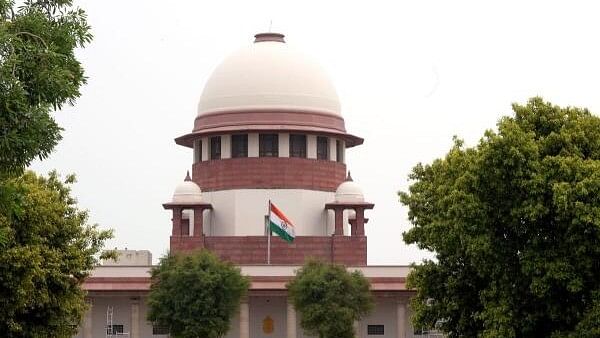
Supreme Court of India.
Credit: PTI Photo
New Delhi The Supreme Court on Thursday made it mandatory for the authorities imposing preventive detention to furnish all relevant documents and statements to the person being detained.
A bench of Justices B R Gavai, Prashant Kumar Mishra and K V Vishwanathan said the right to personal liberty and individual freedom cannot be arbitrarily taken away even temporarily without following the procedure prescribed by the law.
In its judgment, the apex court underscored the necessity for detainees to be provided with a fair and effective opportunity to challenge detention orders.
The court held that the failure to supply all relevant documents and statements, especially in a language the detainee is conversant with, hampers their right to effectively contest the detention and thus, the constitutional right of effective representation.
“All such materials which have been relied upon by the detaining authority while arriving at its subjective satisfaction must imperatively be supplied to the detenue. Failure to do so hampers the detainee’s right to make an effective representation, as guaranteed under Article 22(5),” it held.
The bench said the detaining authorities must not only inform detainees about the grounds of their detention, but also ensure that all essential materials are provided in a comprehensible format. It further highlighted that authorities must guard against arbitrary actions and ensure that the rights of individuals under preventive detention are respected at every stage.
The prison authorities as well as the competent authority in the central government are also obligated to decide a detainee’s representation with "utmost expedition", it said.
The apex court set aside the Kerala High Court's judgment which upheld a preventive detention order under the Conservation of Foreign Exchange and Prevention of Smuggling Activities Act, 1974 (COFEPOSA).
The court noted significant procedural lapses which violated the detainee’s right of effective representation under Article 22(5) of the Constitution.
It pointed out Appisseril Kochu Mohammed Shaji, the detainee, had not been provided with a key witness statement, nor had he received translations of important documents in Malayalam, his native language at the time of his detention in August 2023.
The court criticised the delay by prison authorities in handling Shaji’s representation which took over nine months to reach the central government, though filed in September 2023.
“Such a callous and casual approach is a denial of the protection conferred by the Constitution,” the court said.
